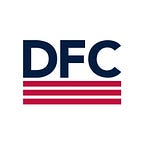From refugee to entrepreneur: How DFC financing is helping displaced women in the Middle East gain financial footing
Many women around the world face significant financial disparities in terms of accessing paid work, training in financial literacy, and small business loans. The growing population of female refugees face greater challenges. Often lacking work experience, as well as a social or business network, many struggle to support their families or save for the future.
In Jordan and Lebanon, home to more than 1.5 million refugees—mostly from Syria—DFC is helping women refugees develop their skills as artisans, landscapers, and plumbers to launch small businesses and work toward financial independence.
Two years ago, DFC committed financing to the Near East Foundation to support a training and a grant program to help refugees and vulnerable host populations launch microenterprises with the goal of building a sustainable household income. The Near East Foundation identified a group of people to participate in the first phase of the training program, which focuses on financial literacy, entrepreneurship, and networking. Three-quarters of those participants were women.
Since their selection, many have graduated from the program and continued on to launch small businesses that are helping support their families and provide services to their communities. For example, Heba (pictured below) is a refugee who used training and grants from Near East Foundation to launch an indoor landscaping business that enables her to cover many of her family’s needs and invest in expanding the business.
Near East Foundation’s Co-President of Programs Simona Ceci and Vice President of Programs Rabih Yazbeck spoke about the project and the impact it has seen.
Why did this program focus on women entrepreneurs?
We conducted a survey that showed that women refugees tend to be the least economically active. They have a higher level of unemployment than men and if they are employed, they tend to earn less. They often suffer from food insecurity as a result. We want to reach the most vulnerable people and focus on many basic needs such as shelter, food, and care for dependent children.
What are some of the barriers these women face to participating in the economy, and how did this training help address those barriers?
A major barrier to work is a lack of skill. These can be complex vocational skills or soft skills as basic as time management. We provide coaching and training in both soft skills and technical skills. We also connect beneficiaries to health, education, and social protection programs. We then provide them with business development services, small group coaching, and mentorship. We facilitate access to new markets by organizing fairs to connect them with new markets.
What have you learned about the potential of refugees?
We’ve worked with refugees in urban and rural areas and the impact of their work is visible in their communities. Refugee livelihoods are often very small and not very well-resourced, but we have seen that with support, these livelihoods can grow and create new jobs, and refugees can positively contribute to their host country economies and not be dependent on aid.
DFC financing supported the creation of a Development Impact Bond, in which financing is repaid by donors seeking measurable social impact. How do you measure the impact and how did DFC’s financing support the success of this project?
DFC was one of the few lenders to provide multiyear financing. This was crucial. Funding for refugee programs is often on one-year cycles, but longer term investment is needed. Working with DFC also enabled us to consult with DFC’s technical experts on matters of gender and risks to discuss and improve our overall systems and procedures.
We have been quantifying the impact by monitoring impact on participants’ overall safety and well-being, as well as their ability to meet basic needs such as healthcare, education, food, and other emergency needs. We also monitor new household income generated from supported new businesses.
